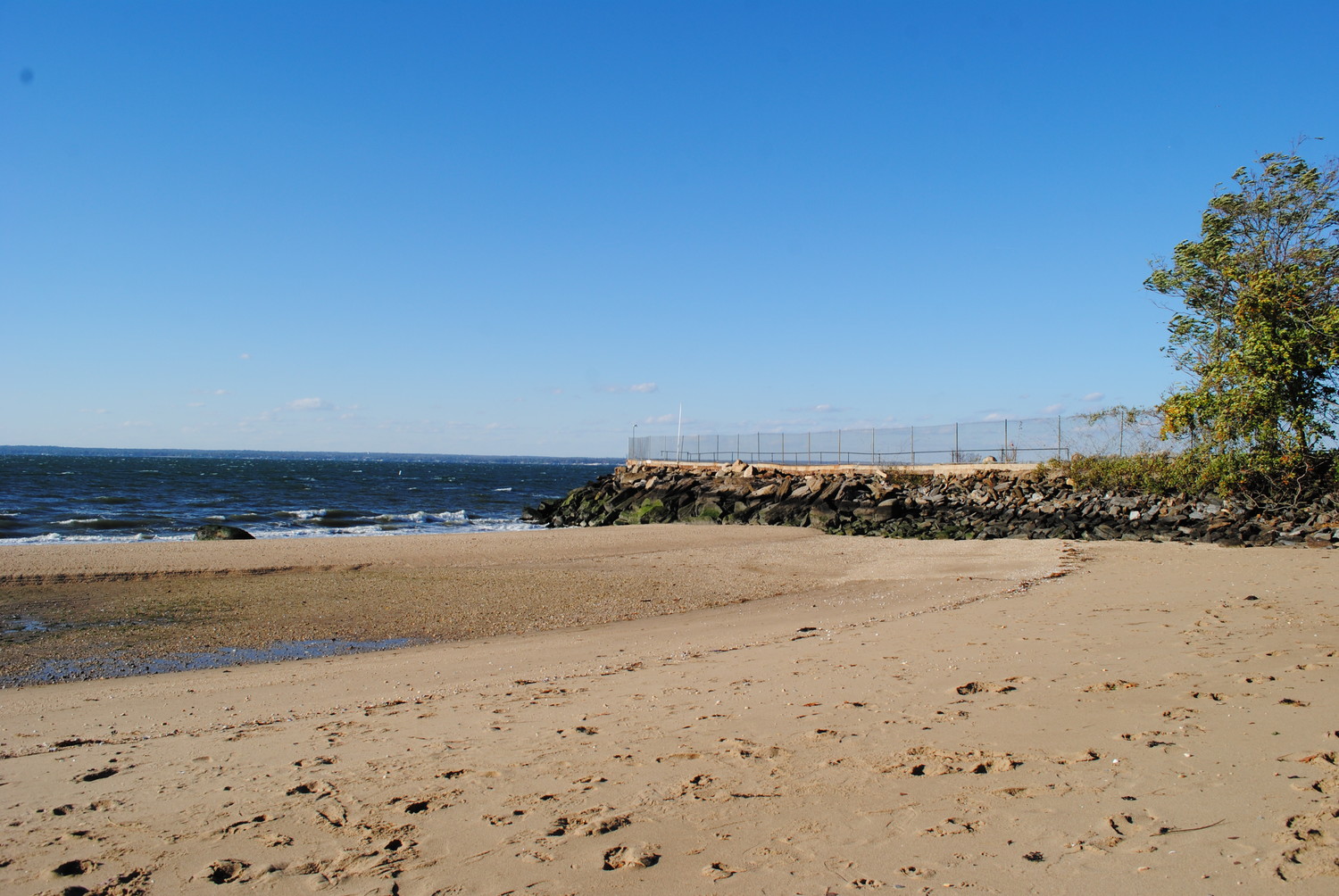DEC: Homes might have contaminated Crescent Beach
The Department of Environmental Conservation has notified eight homeowners in Glen Cove that pipes on their properties may be the long-sought source of contamination that has kept Crescent Beach gated since 2009. The notification is the latest in an effort by state, county, and city agencies to determine how, and from which source coliform and enterococci bacteria have gotten into coastal waters and risen to such levels as to make the beach use unsafe.
The study, commissioned by the county and made public last month, pointed to 11 illicit uncapped sewer pipes dumping untreated waste into a stream that empties directly into Long Island Sound.
“We now have photographs and pictures of points of discharge along that creek that actually show where the pollution and contamination are coming from,” said Glen Cove Mayor Timothy J. Tenke before last November’s election. But although the source of contamination may have been discovered, “It’s not as simple as just capping the pipes,” he said. “Our DEC liaison has told us that capping the pipes at one end could create problems at the other end, or at any point along the way.” And the condition of the pipes along their complete route is another complicating factor.
Run-off from sewer pipes isn’t the only suspect as a source of wastewater, however, and therein lies part of the difficulty. Contaminated ground water from improperly installed or degraded septic tanks could be a contributing factor as well, according to a $51,000 study published in 2014. That study was part of a report included in a $12 million bond issue the county approved the same year to investigate expanding sewer service along the North Shore. It is not clear whether any of the homes or housing estates in the ongoing investigation were included in the earlier reports.
Much of the property along the sound has never been linked to municipal sewer lines, partly due to its topography. Hooking up all 152 houses along the hilly terrain could cost as much as $37 million, according to a statement by Brian Schneider, assistant to the county’s deputy commissioner of public works. While connecting these properties to city sewer lines might cost millions, a cheaper solution is available, according to Legislator Delia DeRiggi-Whitton, of Glen Cove. Pipes could be capped for as little as $20,000 each, she said at the time the county report was released, plus an additional $80,000 cost to treat the waste water. She has called for the city to pay the cost.
For now, the DEC will carry out additional studies to determine which of the eight homes are responsible. If any of the pipes are identified as sources of contamination, homeowners will be required to cap them. Based on past experience it seems likely fines will be levied as well. Penalties for illegal dumping of wastewater can run as high as $8,000 per violation, not counting the cost of capping.
Tenke said at his inauguration on Jan. 1 that his goal is to have Crescent Beach open by this year.






